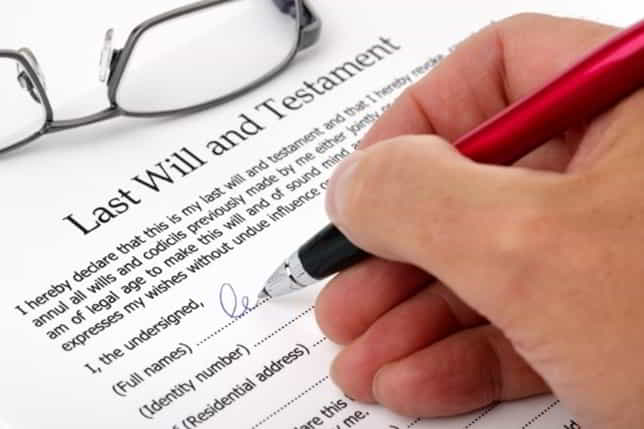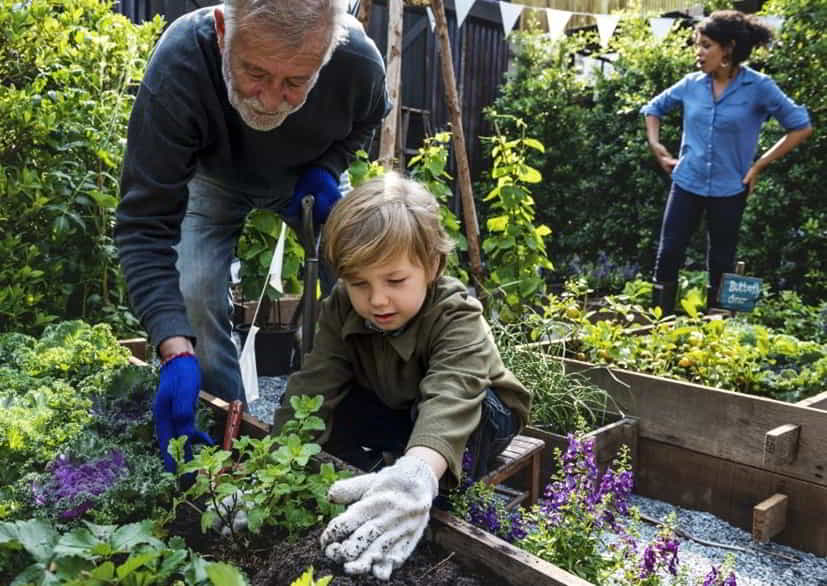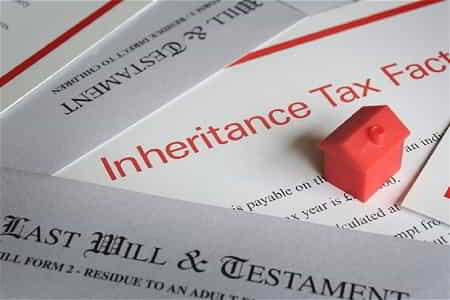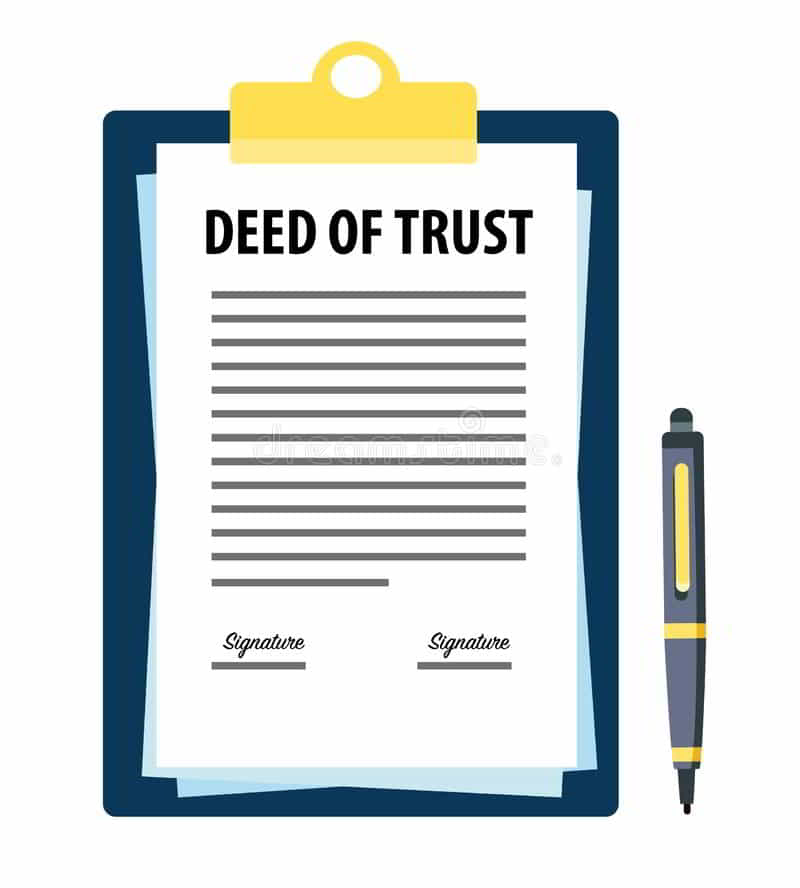WillDrive
This area of YouDrive is all about making your will.
Over 40% of people still don’t make a will and 70% think only old people make wills. Both are really crazy statistics when you think about it.
Making a will isn’t just about the financials of your estate but your wishes. And is more important if your wishes and money are connected.
Click on a heading below and see a summary, and if you're interested you can GO and read more about it!
Here are some initial thoughts about wills. GO!
Here are some facts and stats about wills. GO!
Here are some more odd facts about wills GO!
If you don’t make a will and then you die, it’s called intestacy and it means the courts make every decision about who gets what according to rules. GO!
Do you think it doesn’t matter (yet)? You’re wrong – see why. GO!
See the top 5 reasons people don’t make a will. GO!
What’s a trust and how does this differ from a will? GO!
What’s the best way of drawing up a will? GO!
If you’re a visitor to our site you can join and download information, assess your own health and create your own action plans, and even contribute to our site. GO!
See what you can do next. GO!
We have some additional information on this subject. GO!
Some Initial Thoughts

What is a will and why is it important?
According to Investopedia: "A will is a legal document that sets forth your wishes regarding the distribution of your property and the care of any minor children. If you die without a will, those wishes may not be carried out. Further, your heirs may end up spending additional time, money, and emotional energy to settle your affairs after you're gone."
Failure to prepare a will typically leaves decisions about your estate in the hands of the court. This means you don't have a say in who gets what.
Further, the courts will also decide on what happens to your children and who will care for them.

What can go wrong?
Why make a will you ask – it is a morbid subject, but let me give you an example – you’re 35, single and have your own home, and dog? If you die, who inherits your house, the contents of your house, your dog? I bet you care.
Imagine you’re a single parent with a second absent parent and you have a vision and plan for your child’s future. Unfortunately, you pass away leaving no will and the plan you had still inside your head. What would happen to your child, what about their future? What about the money they inherited from you? What about their desires and education plans?
It could be decided by the next of kin, the absent parent. What if that parent lived in a different country a long way away from your child’s family and friends!!!!!!
Facts About Wills
you have to pay any inheritance tax before grant of probate is issued. You can make the payment up to six months from the end of the month in which the person died
A recent study by Royal London found that of people aged over 55 without a Will, 16% own a home either outright or with a mortgage.
The probate process takes around a year on average, from the date of the person’s death to the estate being distributed. It may take less time, but even simple estates usually take a minimum of six months to complete probate. (Unbiased)
Around 54% of UK adults do not have a will. Recent research carried out by Royal London, YouGov, IRN Research and Orchard
with no relatives before the estate passes to the government (Crown Estate). There are over 10,000 estates on a list of ‘Bona Vacantia’ estates.
19% of the population went to will writers and out of this 61% were unaware that will writers were unregulated. 51% of the people who were interviewed said that they thought will writers should be regulated. Source as before
Is what you can expect to pay for a solicitor will
Around 80% of those polled were charged fixed fees for wills but only 68% paid the fee which was quoted at the start.Source as before.
See more facts about wills
Your debts do not die with you Any debts that you have which are outstanding when you die will need to be paid from estate funds. Once these have been paid the remainder of your estate can be distributed in accordance with the wishes expressed in your will. It is possible for an estate to be insolvent or ‘bankrupt’ if there are not enough assets to repay the debts.
You can’t leave your estate to your cat Your pet might be the most loved member of your family, so you might be upset to read that you cannot leave your pet any of your money. Pets cannot own property or money, so you cannot leave anything to them in your will.
However, there are different ways you can plan for them in your will to make sure that your pets have a good life after you die.
Without a will, your spouse will not automatically inherit all your assets – they will be distributed according to the Intestacy Rules. Further, the person who is your partner, or what you may call your common-law spouse, will not automatically inherit.

If you don't make a will and die it is called intestacy
What can happen if you don’t make a will and you die. (This advice applies to England. See advice for Northern Ireland, Scotland, Wales).
When a person dies without leaving a valid will, their property (the estate) must be shared out according to certain rules. These are called the rules of intestacy. A person who dies without leaving a will is called an intestate person..
Only married or civil partners and some other close relatives can inherit under the rules of intestacy.
If someone makes a will but it is not legally valid, the rules of intestacy decide how the estate will be shared out, not the wishes expressed in the will.
Your family might have to pay tax before they can access any of the money from your estate. They might have to sell their own home to pay the government! Can’t believe it? It’s true – click below to see an article that will horrify you! You must:
– decide on what happens to your estate when you die
– decide exactly what goes to who
This is important – if you’re living together and not married it’s even more important – see the article.below.
It will save your family real trouble at a difficult time.
You will be able to access the articles referred to by clicking on the headings below.
You have to pay HMRC before you receive any proceeds from the estate!
Where do I stand if my partner dies without leaving a will?
There are a number of flow charts – this one from Cunningtons LLP relates to the rules in England and Wales in 2022,

Married partners or civil partners inherit under the rules of intestacy only if they are actually married or in a civil partnership at the time of death. So, if you are divorced or if your civil partnership has been legally ended, you can’t inherit under the rules of intestacy.
Partners who separated informally can still inherit under the rules of intestacy. Cohabiting partners (sometimes wrongly called ‘common-law’ partners) who were neither married nor in a civil partnership can’t inherit under the rules of intestacy.
If there are surviving children; grandchildren or great grandchildren of the person who died and the estate is valued at more than £270,000, the partner will inherit:
all the personal property and belongings of the person who has died, and the first £270,000 of the estate, and half of the remaining estate.
If there are no surviving children; grandchildren or great-grandchildren, the partner will inherit:
all the personal property and belongings of the person who has died and the whole of the estate with interest from the date of death.
Couples may jointly own their home. There are two different ways of jointly owning a home. These are beneficial joint tenancies and tenancies in common.
If the partners were beneficial joint tenants at the time of the death, when the first partner dies, the surviving partner will automatically inherit the other partner’s share of the property. However, if the partners are tenants in common, the surviving partner does not automatically inherit the other person’s share.
Couples may also have joint bank or building society accounts. If one dies, the other partner will automatically inherit the whole of the money.
Property and money that the surviving partner inherits does not count as part of the estate of the person who has died when it is being valued for the intestacy rules.
Children of the intestate person will inherit if there is no surviving married or civil partner. If there is a surviving partner, they will inherit only if the estate is worth more than a certain amount.
Children – if there is no surviving married or civil partner; If there is no surviving partner, the children of a person who has died without leaving a will inherit the whole estate. This applies however much the estate is worth. If there are two or more children, the estate will be divided equally between them.
Children – if there is a surviving partner; If there is a surviving partner, a child only inherits from the estate if the estate is valued at over £270,000. If there are two or more children, the children will inherit in equal shares: one half of the value of the estate above £270,000.
All the children of the parent who has died intestate inherit equally from the estate. This also applies where a parent has children from different relationships.
A child whose parents are not married or have not registered a civil partnership can inherit from the estate of a parent who dies intestate. These children can also inherit from grandparents or great-grandparents who have died intestate.
Adopted children (including step-children who have been adopted by their step-parent) have rights to inherit under the rules of intestacy. But otherwise, you have to be a biological child to inherit.
Children do not receive their inheritance immediately. They receive it when they reach the age of 18, or marry or form a civil partnership under this age. Until then, trustees manage the inheritance on their behalf.
A grandchild or great grandchild cannot inherit from the estate of an intestate person unless either:
their parent or grandparent has died before the intestate person, or their parent is alive when the intestate person dies but dies before reaching the age of 18 without having married or formed a civil partnership In these circumstances, the grandchildren and great grandchildren will inherit equal shares of the share to which their parent or grandparent would have been entitled.
Parents, brothers and sisters and nieces and nephews of the intestate person may inherit under the rules of intestacy. This will depend on a number of circumstances: whether there is a surviving married or civil partner whether there are children, grandchildren or great grandchildren. in the case of nephews and nieces, whether the parent directly related to the person who has died is also dead the amount of the estate.
Other relatives may have a right to inherit if the person who died intestate had no surviving married partner or civil partner, children, grandchildren, great grand-children, parents, brothers, sisters, nephews or nieces. The order of priority amongst other relatives is as follows:- Grandparents, uncles and aunts. A cousin can inherit instead if the uncle or aunt who would have inherited died before the intestate person half-uncles and half-aunts. A half-cousin can inherit instead if the half-uncle or half-aunt who would have inherited died before the intestate person.
The following people have no right to inherit where someone dies without leaving a will:
unmarried partners (sometimes wrongly called ‘common-law’ partners) lesbian or gay partners not in a civil partnership relation by marriage
close friends, carers, However, even if you can’t inherit under the rules of intestacy, you might be able to apply to court for financial provision from the estate.
If there are no surviving relatives who can inherit under the rules of intestacy, the estate passes to the Crown. This is known as bona vacantia. The Treasury Solicitor is then responsible for dealing with the estate. The Crown can make grants from the estate but does not have to agree to them.
If you are not a surviving relative, but you believe you have a good reason to apply for a grant, you will need legal advice.
It is possible to rearrange the way property is shared out when someone dies without leaving a will, provided this is done within two years of the death. This is called making a deed of family arrangement or variation. All the people who would inherit under the rules of intestacy must agree.
If they agree, the property can be shared out in a different way so that people who do not inherit under the intestacy rules can still get some of the estate. Or they could agree that the amount that people get is different to the amount they would get under the rules of intestacy.
If you think that the way the estate is shared out should be rearranged, you will need legal advice. You may get legal aid.

Why make a will
What, make a will in my 40s and 50s? Yes, and here’s the reason why. Making a will in your forties is by far the most sensible thing to do especially if you have a complicated estate or family situation..
A will is a document stating your wishes. It can be amended whenever you like and redone or superseded at any time. If you do not have a complicated life situation and there are very few beneficiaries then you could wait until you are in your 60s or 70s before completing a will. But good practice is making the will in your forties and then amend it every few years.
Why make a will? Well, if you have several siblings and several children and perhaps a split marriage or marriages then it’s not just about money – it’s about your desires and ambitions for your children’s future. If you are in your forties and have a complex personal life with children to different partners or partners living in a different part of the country/ world what happens if you die?
Your immediate wish would be ensure stability and ensure your children get the professional support they need to get over the loss of a parent. With a will you will appoint executors who will carry out the instructions set out in the will. But what if your children need money and they live with an estranged parent, who decides what money and when and who is responsible for distributing the wealth? What if a child lives in another country? What about their education and wellbeing? All these points can be specified in a will, they might not be enforceable but it gives an indication to your executers of your intent.

Top 5 reasons for not leaving a will
Here are the top 5 reasons why people don’t make a will:.
1 They Believe They Personally Don’t Need a Will – that may be true but as we said it’s not just about the money – there are personal things to consider as well
2. They Don’t Want to Talk About Intimate Details – this is very true but if you don’t you could be leaving loved ones in a real mess and create anxiety amongst the family as to who gets what and when
3. They Don’t Feel Ready – none of us want to feel we are getting old or that we might be getting closer to ‘one foot in the grave’ but wills aren’t about dying they are about what you want if something does happen.
4. They Haven’t Considered the Consequences of Not Writing a Will.
5. They Believe They Don’t Have Enough Money to Write a Will – as we have said a will isn’t just about money it’s about everything that belongs to you and your wishes.
A will can contain things such as what type of funeral you want, what music you want playing, or do you want flowers or donations etc. Another reason to have a will is you may wish to leave money to grand children who are too young to know what to do with the money therefore you might want to create a trust fund so they receive the money at different stages in their lives.
You can choose what type of will to do, a DIY will that costs a few pounds from most retailers, or you could speak to an online specialist, or you could visit a solicitor and have the will created professionally.

What about a trust?
What is a trust?
A trust is a legal arrangement where you give cash, property or investments to someone else so they can look after them for the benefit of a third person.
So, for example, you could put some of your savings aside in a trust for your children.
There are two important roles in any trust that you need to understand.
• The trustee is the person who owns the assets in the trust. They have the same powers a person would have to buy, sell and invest their own property. It’s the trustees’ job to run the trust and manage the trust property responsibly.
• The beneficiary is the person who the trust is set up for and is usually unable to manage the trust assets for themselves because they are too young or they are not good at managing their own money. The assets held in trust are held for the beneficiary’s benefit.
What can a trust do?
A trust can be a good way to cut the tax to be paid on your inheritance, but you need professional advice to get it right. Always talk to a solicitor or independent financial advisor.
If you put things into a trust then, provided certain conditions are met, they no longer belong to you. This means that when you die their value normally won’t be counted when your Inheritance Tax bill is worked out. Instead, the cash, investments or property belong to the trust. In other words, once the property is held in trust, it’s outside anyone’s estate for inheritance tax purposes.
Another potential advantage is that a trust is a way of keeping control and asset protection for the beneficiary; a trust avoids handing over valuable property, cash or investment whilst the beneficiaries are relatively young or vulnerable.
The trustees have a legal duty to look after and manage the trust assets for the person who will benefit from the trust in the end.
When you set up a trust you decide the rules about how it’s managed. For example, you could say that your children will only get access to their trust when they turn 25.
Will vs. Trust: What’s the Difference?
The main difference between a Will and a Trust is that a Will only come into effect after you have passed away. A Trust can start working for you and your loved ones as soon as you set it up.
Most people have heard of a Will, but many people don’t know what a Trust is, and they’re not aware of how important it is to have put either or both of these legal documents in place.
Both a Will and a Trust can be instrumental in giving you peace of mind and the security you want when you think about your future and your family’s future. It can be difficult to understand the differences between a Will and a Trust, so you may feel unsure when you speak to a Solicitor about making a Will as you look to protect your assets both now and after you die.
There are some other debts which might be priority debts depending on your circumstances.

DIY will or will company or solicitor wills
There are 3 ways to do your Will: a DIY will or there are Will writing companies and services or alternatively a solicitors will which provides guidance and professional advice...
The main difference between Will Writers and solicitors is that while anyone can become a Will Writer, you’ll need to become a chartered lawyer to be a solicitor. The law in England and Wales states that anyone can write a Will, meaning that you or a professional Will Writer are perfectly able to do so.
However, merely writing a Will doesn’t mean that it is legally valid, which could lead to complications and unnecessary stress after you have passed. This is why we always recommend choosing a solicitor or professional Will Writer to write your Will. A man and a woman discussing a Will in an office Choosing to have a solicitor write your Will ensures that you are covered by the protections offered by legal service regulators. As such, you wouldn’t incur any costs should the Will need to be rewritten.
Solicitors tend to cost more than professional Will writers, so if money is a concern for you, the latter may be a better option. Additionally, if you’re reasonably familiar with the Will-writing process, you may find it easier to go down this route rather than deal with a solicitor. However, if you have a more complex estate or would like the added security that comes with using an accredited solicitor, we’d suggest that this is the better choice for you. It only takes one mistake for a Will to be deemed invalid, so getting it right the first time is very important. The types of situations where you’d be better off with a solicitor include:
Click on any of the tabs on the right to see more information
It’s free, and you can obtain examples and guidance on line and via YouTube. You can obtain a blank Will document from WHSmith’s for under a £5 or download online. The drawbacks are you don’t know how legally binding it is or whether it contradicts itself. Are there mistakes or irregularities in the documentation? Some of the requests or statements may be illegal.
Many banks, societies and charities now offer free will writing services, which provide more help and guidance. Bear in mind these are not regulated.
If you have a complicated estate, multiple families and descendants then a professional will is the best for you.
For visitors
Why don't you join us?
You can register to join us as a member, when you’ll be able to download our stuff and comment, or as a YouDriver when you’ll also be able to check your health and set up your own action plans to make some improvements. If you’ve already registered, sign in below. Or let us know what you think.
Making a will – a professional will writer gives his advice
Making a will
We know this video from Rod Fisher at Wealthguard is aiming to get business, but we think it sets out the real reasons why making a will is so important.

Next Steps
It doesn’t matter what stage you’re at – it’s important to be the best you can be. At the end of the day it’s about taking personal responsibility – You Drive!
It’s really your choice. You can find out more information about the subject, or see other institutions that can help by going to Support. There you will find organisations, training, coaching, self-help courses and other items to support your personal change. We have also started developing a panel of experts to provide info, advice, help and support.
Get Support
There are times when you need some help to meet your aims – a helping hand. That might be an organisation that can provide you with some help, some specialised information, a particular book or tool to help, or just getting some background reading material.
We have a lot of items which appear on our Drives and other pages, which you can go to by clicking on the picture or link. Some contain affiliate links and we may receive a tiny commission for purchases made through these links.
If you know of anything which could help you or our other visitors then please click the button on the right, which will take you to a Contacts page where you contact us.
Experts
We are compiling a list of experts who can provide advice, help or specialised services. You will be able to access these experts from anywhere on our site you see our ‘Experts’ symbol. Click the green E to see what our Experts list will look like, with a couple of imaginary ‘experts’ added!
More Information
Scroll down to see more information on this Drive.
If you register you can also download reports, white papers, quizzes and other collaterals. We will never ask you for any financial information, and we’ll only send you the information you want. You can register for our site either above or in the footer below. You can provide your own questions and experiences in order to help other members. We only moderate for spam and inflammatory language – see our moderation policy.
If you’ve found this interesting, then please share it on social media. Choose your network!
More information
Will Writing
How To Write A Will Easily
Do You Want To Create Your Will But Have No Idea How To?
Are You Aware Of How Important A Will Is?
Writing Your Own Will
The Easyway
This book aims to demystify the whole area of wills and probate and provide invaluable information for the reader.
Wills, Trusts and Estate Planning
Private Client: Wills, Trusts and Estate Planning (CLP) Paperback – 1 Feb. 2022
Private Client: Wills, Trusts and Estate Planning is a comprehensive and user-friendly examination of the legal and taxation implications arising from estate planning work within the private client department of a solicitors’ firm.
Money Advice Service information on making a will
Three reasons to consider setting up a living trust from Mom and Dad Money
Saga information on trust for beneficiaries in your will
Download the HMRC guide to Inheritance Tax
AFH wealth management have a report ‘An introduction to estate planning’ – download it here
Old Mutual Wealth have a Guide to UK Inheritance Tax and Trusts – download it here

















